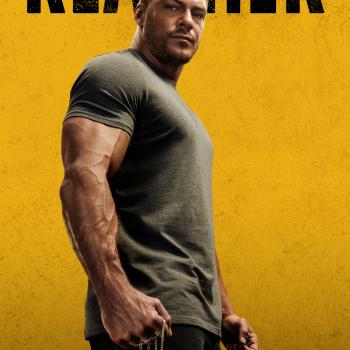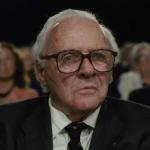Review of Total Recall, Directed by Len Wiseman
By COYLE NEAL
“But it irks me, Lord, to link that phase of my existence with my present life, the life I live now in this world; I do not remember passing through it, I have to rely on the reports of others concerning it…”[i]
Augustine wrote those words thinking about his infancy, asking whether or not his identity is affected by a period in his life which he cannot remember. The two versions of the movie Total Recall, one released in 1990 and one opening today, both engage this question by asking how much of our identity is wrapped up in our memory. Does who I was yesterday shape me at any kind of fundamental level? And, if so, if my memories of the past are changed, do I become a different person?
Total Recall sets the answer to these questions in a not-so-distant post-apocalyptic future in which the world has been reduced to two livable zones: England and “the Colony” (Australia). The two locations are connected by “The Fall,” essentially a giant subway through the middle of the earth which transports day laborers from the Colony to England and back in a matter of minutes. Douglas Quaid is such a day laborer who just wants a bit more out of life than his assembly-line job, so he visits “Rekall,” a company that promises to give you any new memories you desire. Just as his pre-download brain scan reveals that he already has been given new memories, bullets start flying and the movie is off and running. In all of this mess of layers of memories, Quaid travels what’s left of the world trying to unravel the web of deceit woven around him in order to discover who he really is. (All this while Malcom’s Dad lurks in the shadows, polishing his metaphorical monocle and laughing maniacally.) In doing so, clear statements are made about the nature of human identity.
So what is the role of memory in human existence? Does it shape who we are? In the original version, starring Arnold Schwarzenegger and set on both Earth and Mars, the answer is a resoundingly optimistic “yes”—optimistic because after shooting his way through a number of situations, Arnold chooses to embrace the more-pleasing-but-false memories, punch everyone in the face, and adapt his new persona to the present reality. In doing so, he ultimately shapes that present reality to match his new memories and achieves a bright future for all of mankind. (Okay, so his character had a name in the movie—but I really don’t think the character’s name matters when Schwarzenegger fills the role…)
The newer version’s answer to the question of whether or not we are shaped by our memories is a bit more simplistic: it doesn’t matter. What matters is whether we follow our hearts and choose to do the right thing at any given moment. In other words, we are more shaped by our emotions than we are by our memories. The movie suggests that there is a deeper emotional identity to us than merely what has happened to us in the past—in fact our past can even limit our authentic identity and hold us back from being the person we should be. The solution to the problem of human identity is not in discovering our past; it is in embracing what’s in our hearts.
How are we as Christians to think about this question of the relationship between memory and identity? To quote Augustine again: “O my God, profound, infinite complexity, what a great faculty memory is, how awesome a mystery! It is the mind, and this is nothing other than my very self.”[ii] The memory and the self, according to Christianity’s greatest theologian, are directly related, even the very same thing. And yet, Augustine goes on to point out that the memory on its best day is flawed—we forget things, lose bits of the past, and have whole parts of our life that are blanks to us, however much they may have affected us in the present. What we need is a basis for our identity that transcends the limitations of our fallen minds. And this, Augustine suggests, is found only in a relationship with God. We need neither new memories nor greater faith in our “true” inner selves in order to reveal our identities; we need the illumination that comes from knowing God and that lights up our lives past, present, and future and throws our true selves into sharp relief against Transcendence. This in turn leads to recognition of our need for a Savior, which takes us beyond the plot of the two movies…
And, lest you think Total Recall was all philosophical and theological reflection, let me suggest that both versions are worth your time. In addition to the interesting questions raised, they are both excellent movies. The original for its campy value, Arnold-based action sequences, and genuine twists; and the remake for its special effects, fast-paced plot, and intriguing take on an already-told tale (one told three times now if we could the Philip K. Dick story called We Can Remember It for You Wholesale).












